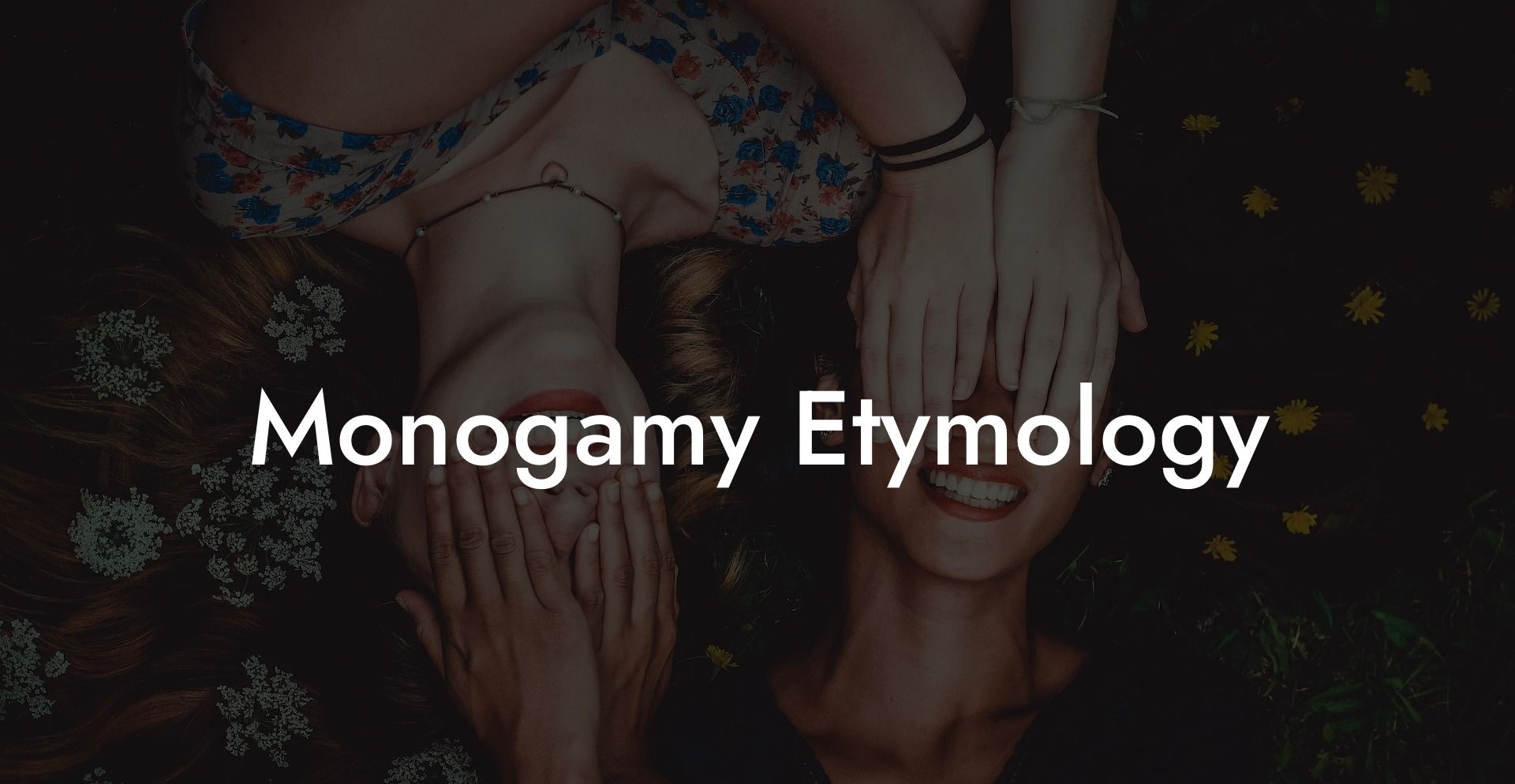When the word "monogamy" comes up in a conversation, it often sparks discussions about the nature of relationships, human needs, and personal beliefs. Yet, how many of us have ever stopped to think about the origins of the term and the evolution of its meaning over time? Understanding the history behind the word monogamy may give us a fresh perspective on our current conversations around monogamous and non-monogamous relationships. So, let's take a walk through the annals of time to uncover the etymology of monogamy.
Monogamy Etymology Table of Contents
The term "monogamy" is derived from two Greek words: "monos," meaning single or alone, and "gamos," meaning marriage or union. In its original ancient Greek context, monogamy referred to the practice of being married to one person throughout one's lifetime. The concept evolved throughout history to include the idea of exclusivity within relationships, extending to sexual partnerships and romantic connections.
Throughout history, various societies and cultures have adopted monogamous practices as their dominant relationship model. For instance, monogamy was considered central to the Roman Empire's family structure, where marriage served as an essential legal and social institution. During this time, monogamous unions carried both religious and legal significance.
In medieval Europe, the Christian church played a substantial role in promoting monogamy, as the belief in the sanctity of marriage became more widespread. This development led to an increased importance placed on notions of fidelity, loyalty, and fidelity within relationships, seeming to reflect the "till death do us part" mentality that is deeply ingrained in modern Western societies.
Over time, the term "monogamy" underwent a shift in meaning, evolving to include not just marriages but also committed intimate relationships. As society progressed and societal structures changed, the concept expanded to include lifetime commitment and exclusivity within sexual and emotional arenas. As a result, monogamy has become a more complex, multifaceted term throughout the centuries.
Monogamy Etymology Example
Take the modern-day celebrity couple, John Legend and Chrissy Teigen, for example. They openly express their commitment to maintaining a monogamous relationship, serving as role models for many couples who aspire to achieve a successful, long-lasting partnership. Despite the attention and temptations that come with fame, this couple displays loyalty, dedication, and devotion to their monogamous union.
The etymology of monogamy shows us that the concept has evolved alongside our understanding of human relationships. Today, monogamy is not merely about marital bonds, but also a broader reflection of dedication and fidelity within romantic and sexual connections. While the term's meaning has changed throughout history, the core essence of partnership and commitment remains.
Our exploration of the etymology of monogamy offers a fascinating perspective on the origins, development, and present-day significance of the concept, shedding light on our contemporary conversations surrounding monogamy, polyamory, and non-monogamous relationships. Whether you believe in monogamy as a natural human inclination or a social construct, understanding its rich history is essential to engaging with the term in a more profound and informed manner.
We hope you enjoyed this journey into the world of monogamy etymology. If you found this post intriguing, we kindly invite you to share it with your friends and continue exploring the many facets of modern relationships through other guides on The Monogamy Experiment.













